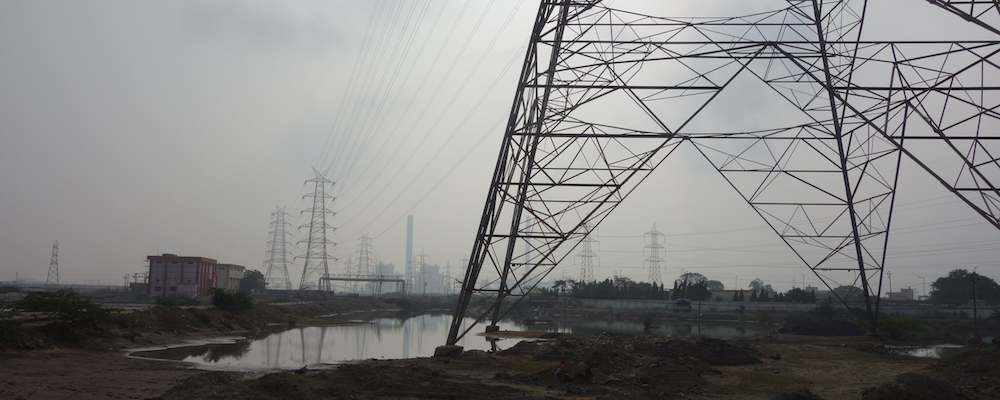Sandra is currently work on the following book projects and research themes:
Re-Scaling Global Health. Human Health and Multispecies Cohabitation on an Urban Planet
The history of urbanization in conjunction with globalization, particularly since the industrial revolution, has repeatedly given rise to widespread contagious diseases. While pandemics have existed throughout history, their rate of occurrence has been increasing dramatically since the 1960s. Increasing urbanization and its effects on land use change, global mobility patterns, and environmental pollution are key interdependent drivers of this process. We see a clear connection between urbanization, biodiversity, and global health that our project seeks to investigate in detail. If we want to work towards improving both human and ecosystem health, we need to pay close attention to the complexities of urban habitats and processes of urban environmental change, untangling the main drivers of urbanization and the interplay between biodiversity and human health. This project brings together an interdisciplinary team of urban scholars from the social sciences, the humanities, urban design and planning fields with ecologists and virologists to work towards conceptualizing and empirically examining the complex relationship between human health and the urban environment. The project is funded by the Berlin University Alliance, which is part of the Universities of Excellence funding line of the German government’s Excellence Strategy. More info here.
Listening to the Archive (research project, together with Jonathan Prior)
Wildlife sound archives emerged as sites of specialist scientific data sets within the 20th century, primarily as repositories of recordings for the study of animal sounds, and as reference libraries for the identification of species by scientific taxonomists and wildlife enthusiasts. The research project Listening to the archive: A cross-cultural analysis of European wildlife sound archives, 1950 to the present focusses on the two largest wildlife sound archives in Europe: The British Library’s Wildlife and Environmental Sounds collection, and the Animal Sound Archive at the Museum für Naturkunde Berlin, to explore how the archives were produced; how archived sound recordings are maintained, circulated, and consumed; how sound recording technologies, techniques, listening cultures, and ethics have shaped the objectives, functions, and uses of archived sound recordings. The project is funded by the British Academy/Leverhulme Small Research Grant award number SRG22\220003
Ecologies of Emptiness (research project, together with Adam Searle and Jonathon Turnbull)
The emptying of space via an absence of human activity is often visually associated with the presence or resurgence of various plants, animals, and other nonhuman beings. Their presence can be viewed as relatively novel—in the case of abandoned cities like Pripyat in the Chernobyl Exclusion Zone—or can be seen as more ‘natural’—such as the Konik horses deliberately introduced to the Oostvaardersplassen rewilding site in the Netherlands to ‘complete’ the nonhuman ecosystem. Ecologies of emptiness can differ greatly depending on their causal agent, the species associated with emptiness in different contexts, and the way their ecological properties are valued. In this project, we present a more-than-human reading of emptiness, considering the ecological implications of various intensities of human absence. To do this, we draw comparisons and contrasts between three case studies: the Chernobyl Exclusion Zone in Ukraine, to which nature has ‘returned’ following its abandonment in the wake of the nuclear catastrophe of 1986 (Jonny); abandoned spaces in Berlin, whose ecologies have been shaped by contested geopolitical histories (Sandra); the St. Kilda archipelago in the Northern Atlantic, whose inhabitants left for the Scottish mainland in 1930 (Adam). Drawing on fieldwork in these three sites, which have diverse relations to emptiness, we are exploring how nature is viewed, valued, and experienced differently at each, developing situated understandings of the varieties of emptiness across species, spaces, and scales. We attend to the intersections of political economy, political ecology, and the uneven experiences—human and nonhuman—of emptying spaces, and their varying relations to capital.
Experimental Fields (monograph)
West Berlin’s material anomalies, its heterogeneous and elusive terrain, and its role as a generator of distinctive intellectual ideas are the primary focus of this book. Drawing on oral history, archives, and ethnographic insights, the book traces how the unusual characteristics of postwar Berlin—an extensively destroyed city and walled-in enclave—created a “laboratory effect” enabling different forms of cultural and scientific experimentation to emerge. Through different examples, including the design of a modernist concert hall, the cultural and scientific discovery of Brachen (wastelands), the strong presence of feminist theory, and cultural responses to the marooned enclave in the visual arts, Experimental Fields presents an alternative history of West Berlin that was confronted with the institutional and political limits to radical experimentation. The book combines insights from geography, architecture, landscape design, feminist theory, art history, and urban ecology that emerged in the particular context of West Berlin. The book publication is supported by the Graham Foundation.
The Botanical City (edited book, together with Matthew Gandy)
Roadside “weeds” and other routinely overlooked aspects of urban nature provide a fascinating glimpse into the complex global ecologies and new cultures of nature emerging across the world. This unique collection of essays explores the botanical dimensions of urban space, ranging from scientific efforts to understand the distinctive dynamics of urban flora to the way spontaneous vegetation has inspired artists and writers. The book comprises five thematic sections: histories and taxonomies, botanizing the asphalt, the art of urban flora, experiments in non-design, and cartographic imaginations. The essays explore developments in Berlin, London, Lahore, Tokyo, and many other cities, as well as more philosophical reflections on the meaning of urban nature under the putative shift to the Anthropocene. More info here: The Botanical City (Berlin: jovis, 2020).


